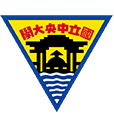Kunqu Opera Museum
Kunqu Opera, known as the "mother of all operas", has a long history, profound cultural heritage, and great artistic value. It was listed by UNESCO as one of the first batch of "intangible cultural heritage of humanity". The predecessor of the Kunqu Opera Museum at National Central University was the Traditional Theatre Research Center established by Professor Hung, Wei-Chu in 1992. Professor Hong has long been dedicated to collecting and researching Kunqu cultural relics and documents, with a collection mostly consisting of artifacts from modern Kunqu artists, composers, and scholars, serving as a condensed reflection of modern Kunqu history.
The Kunqu Opera Museum at National Central University opened in November 2017, situated in the Liberal Arts Building #2, and is the only Kunqu Opera museum in Taiwan. The museum's collection consists of tens of thousands of documents, over 6,000 audio-visual materials, and hundreds of years of precious Kunqu artifacts, making it a collection that stands out globally.
The Kunqu Opera Museum is divided into a "permanent exhibition" and a "special exhibition" area. The permanent exhibition area showcases "Kunqu Opera history", "Taiwan's Kunqu Opera", and "The Beauty of Kunqu Opera". The special exhibition area changes twice a year, and the stage area serves as a venue for small performances and educational outreach. Since its establishment, the Kunqu Opera Museum has been devoted to promoting the collection and research of Kunqu Opera, with a research focus on the history of Kunqu Opera, musicology, and Kunqu vocal styles. In terms of arts outreach and education, the museum has cooperated with relevant museums, theater groups, and others to establish a platform for interaction and communication between Taiwan's Kunqu Opera community and the general public.





